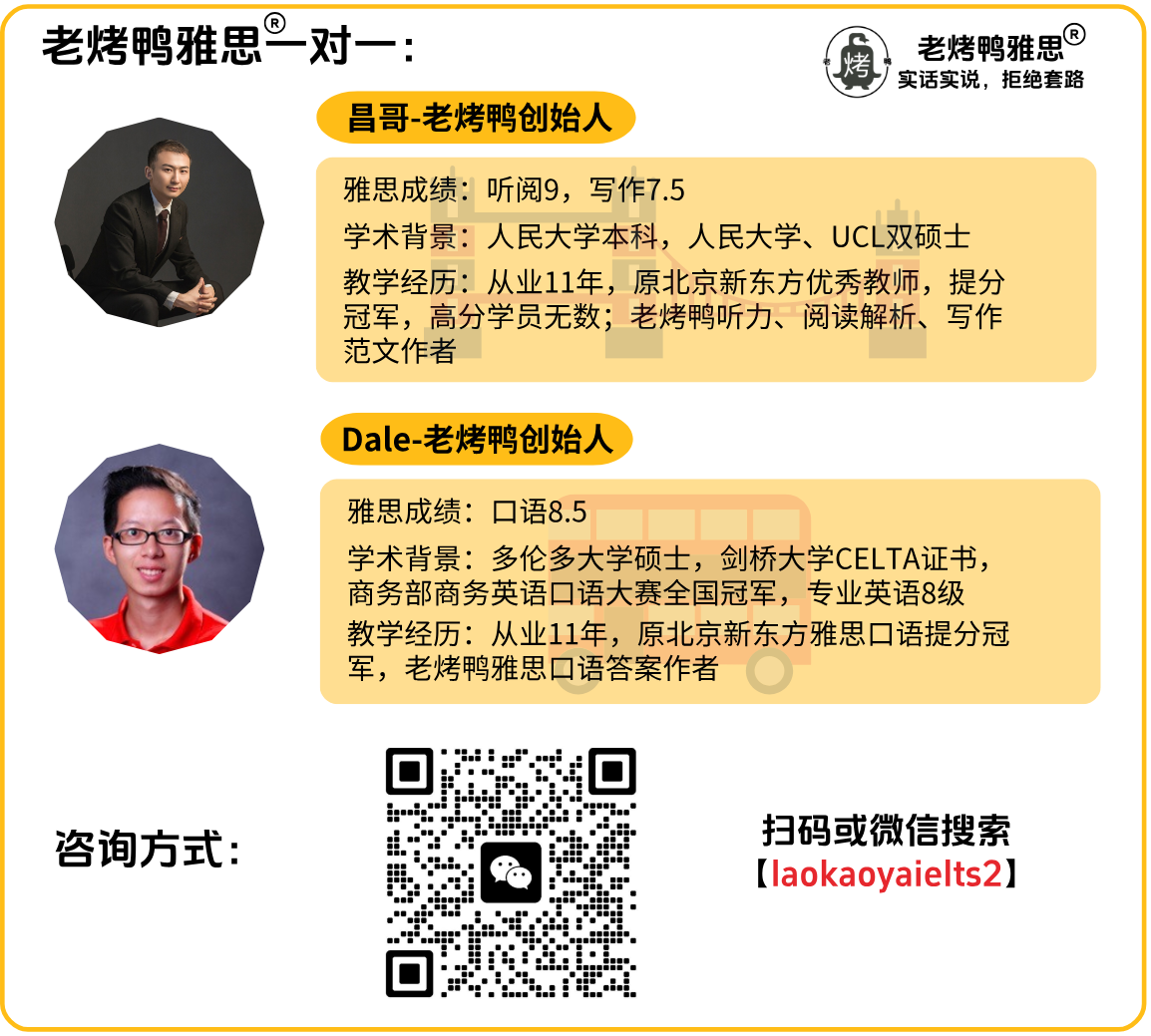剑桥雅思13Test2Section3听力原文与答案 Planning a presentation on nanotechnology
剑桥雅思13听力第二套题目第三篇文章的主题为纳米科技的课堂演讲,具体内容包括计划演讲过程中遇到的困难,演讲的内容,是否要用幻灯片,开启演讲的方式,以及上次演讲中做的不太好的地方。下面是这段听力音频对应的原文。
点击查看这篇雅思听力中需要大家掌握的重点词汇与具体题目的答案解析:
雅思备考听力篇 剑13 test 2 section 3 雅思听力高频词汇
剑桥雅思13Test2Section3听力答案解析 Planning a presentation on nanotechnology
剑桥雅思13 test2 section3雅思听力原文
TUTOR: Ah … come in, Russ.
RUSS: Thank you.
TUTOR: Now you wanted to consult me about your class presentation on nanotechnology – you’re due to give it in next week, aren’t you?
RUSS: That’s right. And I’m really struggling. I chose the topic because I didn’t know much about it and wanted to learn more, but now I’ve read so much about it, in a way there’s too much to say -I could talk for much longer than the twenty minutes I’ve been allocated. Should I assume the other students don’t know much, and give them a kind of general introduction, or should I try and make them share my fascination with a particular aspect (Q21)?
TUTOR: You could do either, but you’ll need to have it clear in your own mind.
RUSS: Then I think I’ll give an overview.
TUTOR: OK. Now, one way of approaching this is to work through developments in chronological order.
RUSS: Uh-huh.
TUTOR: On the other hand, you could talk about the numerous ways that nanotechnology is being applied.
RUSS: You mean things like thin films on camera displays to make them water-repellent, and additives to make motorcycle helmets stronger and lighter.
TUTOR: Exactly. Or another way would be to focus on its impact in one particular area, say medicine, or space exploration (Q22).
RUSS: That would make it easier to focus. Perhaps I should do that.
TUTOR: I think that would be a good idea.
RUSS: Right, How important is it to include slides in the presentation?
TUTOR: They aren’t essential, by any means. And there’s a danger of tailoring what you say to fit whatever slides you can find. While it can be good to include slides, you could end up spending too long looking for suitable ones. You might find it better to leave them out (Q23).
RUSS: I see. Another thing I was wondering about was how to start. I know presentations often begin with ‘First I’m going to talk about this, and then I’ll talk about that’, but I thought about asking the audience what they know about nanotechnology.
TUTOR: That would be fine if you had an hour or two for the presentation, but you might find that you can’t do anything with the answers you get, and it simply eats into the short time that’s available.
RUSS: So, maybe I should mention a particular way that nanotechnology is used, to focus people’s attention (Q24).
TUTOR: That sounds sensible.
RUSS: What do you think I should do next? I really have to plan the presentation today and tomorrow.
TUTOR: Well, initially I think you should ignore all the notes you’ve made, take a small piece of paper, and write a single short sentence that ties together the whole presentation (Q25): it can be something as simple as ‘Nanotechnology is already improving our lives’. Then start planning the content around that. You can always modify that sentence later, if you need to.
RUSS: OK.
TUTOR: OK, now let’s think about actually giving the presentation. You’ve only given one before, if I remember correctly, about an experiment you’d been involved in.
RUSS: That’s right. It was pretty rubbish!
TUTOR: Let’s say it was better in some respects than in others. With regard to the structure. I felt that you ended rather abruptly, without rounding it off (Q26). Be careful not to do that in next week’s presentation.
RUSS: OK.
TUTOR: And you made very little eve contact with the audience, because you were looking down at your notes most of the time. You need to be looking at the audience and only occasionally glancing at your notes (Q27).
RUSS: Mmm.
TUTOR: Your body language was a little odd. Every time you showed a slide, you turned your back on the audience so you could look at it – you should have been looking at your laptop. And you kept scratching your head, so I found myself wondering when you were next going to do that, instead of listening to what you were saying (Q28)!
RUSS: Oh dear. What did you think of the language? I knew that not everyone was familiar with the subject, so I tried to make it as simple as I could.
TUTOR: Yes, that came across. You used a few words that are specific to the field, but you always explained what they meant, so the audience wouldn’t have had any difficulty understanding (Q29).
RUSS: Uh-huh.
TUTOR: I must say the handouts you prepared were well thought out. They were a good summary of your presentation (Q30), which people would be able to refer to later on. So well done on that.
RUSS: Thank you.
TUTOR: Well, I hope that helps you with next week’s presentation.
RUSS: Yes, it will. Thanks a lot.
TUTOR: I’ll look forward to seeing a big improvement, then.
剑桥雅思13 Test2 Section3雅思听力答案
21. B
22. A
23. C
24. C
25. A
26. A
27. C
28. D
29. G
30. B
剑桥雅思13Test2Section1听力原文与答案South City Cycling club
剑桥雅思13Test2Section2听力原文与答案 Information on company volunteering projects
剑桥雅思13Test2Section4听力原文与答案 Episodic Memory





剑桥雅思13Test2Section3听力原文与答案 Planning a presentation on nanotechnology:等您坐沙发呢!